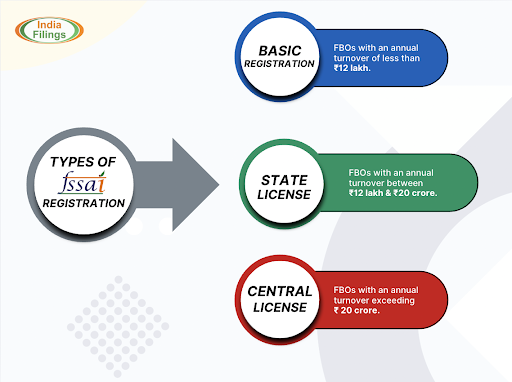



The PAC sharply criticised FSSAI and the Health Ministry for failing to curb rampant food adulteration, citing a CAG report that exposed severe manpower shortages, weak oversight of misleading ads, and overreliance on outsourced work. It demanded immediate corrective action, calling it a major food safety governance failure.

Copyright infringement not intended
Picture Courtesy: THEHINDU
The Public Accounts Committee (PAC) criticized officials from the Ministry of Health and Family Welfare and the Food Safety and Standards Authority of India (FSSAI) about the unchecked sale of adulterated food products.
Prior to 2006, India's food regulation was fragmented across multiple laws and ministries. To create a unified framework, the Parliament enacted the Food Safety and Standards Act, 2006.
FSSAI is a statutory body, under the 2006 Act, responsible for protecting and promoting public health by regulating the food sector.
It operates under the Ministry of Health & Family Welfare.
Core Functions and Responsibilities
Standard Setting: Frames science-based standards for food products, additives, contaminants, and residues.
Licensing and Registration: Issues licenses and registrations to all Food Business Operators (FBOs) in the country.
Monitoring & Enforcement: Conducts surveillance and inspections through state Food Safety Officers to ensure compliance.
Accreditation of Labs: Notifies and accredits food testing laboratories to ensure credible analysis of food samples.
Scientific & Technical Support: Provides advice to Central and State Governments on food safety policies.
Consumer Awareness: Disseminates information and runs campaigns to educate citizens about food safety and nutrition.
Regulatory Framework and Licensing
FSSAI sets standards for a wide range of food products, including dairy, fats, oils, fruits, vegetables, cereals, meat, fish, sweets, spices, and more.
Every Food Business Operator (FBO) must obtain a license or registration based on their annual turnover and scale of operations.
|
License Type |
Eligibility (Annual Turnover) |
Target Group |
|
Basic Registration |
Up to ₹12 lakh |
Small retailers, hawkers, home-based food businesses, and small-scale operators. |
|
State License |
Between ₹12 lakh and ₹20 crore |
Medium-sized manufacturers, processors, restaurants, and traders operating within a single state. |
|
Central License |
Above ₹20 crore |
Large manufacturers, importers, exporters, and operators with units in multiple states. |

Food Adulteration
Limited Testing Infrastructure: More well-equipped and accredited laboratories are needed for food product testing.
Manpower Shortage: Insufficient trained experts and food safety officers hinder effective enforcement. Example: Maharashtra requires a minimum 1,100 FSOs, to meet Government guidelines mandating one FSO per 1,000 FBOs.
Enforcement Gaps: Despite a strong legal framework, compliance enforcement against Food Business Operators (FBOs) is weak. FSSAI requires continuous funding for advanced monitoring and enforcement technology.
Low Awareness & Compliance: Many FBOs, especially small vendors, lack awareness of food safety needs and struggle to comply.
Corruption: Allegations exist regarding bribes for licensing, selective leniency, and opaque regulatory decisions.
International Alignment: Continuous effort is needed to align domestic standards with evolving global norms, highlighted by bans on Indian spices (Singapore/Hong Kong) due to pesticide levels.
Eat Right India Movement: Launched in 2018, to ensure safe, healthy, and sustainable food for all. It has received international recognition for its comprehensive approach.
FoSTaC (Food Safety Training and Certification): A large-scale training program for FBOs.
Food Safety on Wheels (FSW): Mobile food testing labs to enhance outreach, surveillance, and awareness in remote areas.
RUCO (Repurpose Used Cooking Oil): An initiative to collect and convert used cooking oil (UCO) into biodiesel, preventing its unsafe reentry into the food chain.
State Food Safety Index (SFSI): An annual ranking to foster healthy competition among states to improve their food safety performance.
Technological Integration: Launch of the FoSCoS (Food Safety Compliance System) portal, an enhanced, single-window platform for licensing, registration, and regulatory compliance.
Stricter Enforcement and Penalties
Stricter implementation of the FSS Act, 2006, with harsher penalties is needed to deter food adulteration.
Enhanced Testing Infrastructure
Establish more accredited food testing labs nationwide and deploy more mobile labs ("Food Safety on Wheels") for remote areas.
Capacity Building and Manpower
Hire and train more qualified food safety officers and lab personnel to boost assessment, inspection, and enforcement. Invest in continuous training for food handlers and businesses.
Leveraging Technology:
Utilize advanced digital tools (AI, IoT, blockchain) for better traceability, real-time monitoring, and efficient compliance. Streamline online portals like FoSCoS to reduce physical interaction and processing time.
Increased Transparency and Consumer Engagement
Increase public access to FSSAI reports on tested samples, non-compliance, and legal actions. Intensify consumer awareness campaigns (like "Eat Right India") to educate citizens on safe food and identifying adulteration.
Addressing Agricultural-Level Contamination
Strengthen monitoring and enforce stricter pesticide norms for agricultural and processed foods to tackle source contamination. Promote sustainable farming to reduce fertilizer and pesticide overuse.
International Harmonization: Evaluate and align domestic food safety regulations with international standards like Codex Alimentarius to ensure global compliance and trade facilitation.
FSSAI, created under the 2006 Act to unify food safety regulation, sets standards, licenses FBOs, and promotes safe food through initiatives like Eat Right India. Adulteration, weak enforcement, manpower shortages, limited labs, and federal fragmentation hinder effectiveness, demanding stronger capacity, technology, and coordinated regulation.
Source: THEHINDU
|
PRACTICE QUESTION Q. Critically analyze the institutional challenges faced by the Food Safety and Standards Authority of India (FSSAI) in ensuring food safety across the country. 150 words |
FSSAI is a statutory body under the Ministry of Health and Family Welfare, established by the FSS Act, 2006. Its mandate is to act as a single reference point for all food safety matters. This includes framing science-based standards, regulating the manufacture, storage, sale, and import of food, and promoting consumer awareness about food safety and nutrition.
Under the FSS Act, 2006, food safety is a shared responsibility, but the primary enforcement role lies with the State Governments and their appointed Food Safety Commissioners. The effectiveness of food safety regulations across India is highly dependent on the capacity, resources, and political will of individual state authorities, leading to inconsistent implementation.
The State Food Safety Index (SFSI) is an annual index released by FSSAI. It ranks states and UTs based on their performance across five key parameters: Human Resources and Institutional Data, Compliance, Food Testing Infrastructure, Training & Capacity Building, and Consumer Empowerment. It serves as a tool to encourage states to improve their food safety ecosystems.






© 2026 iasgyan. All right reserved